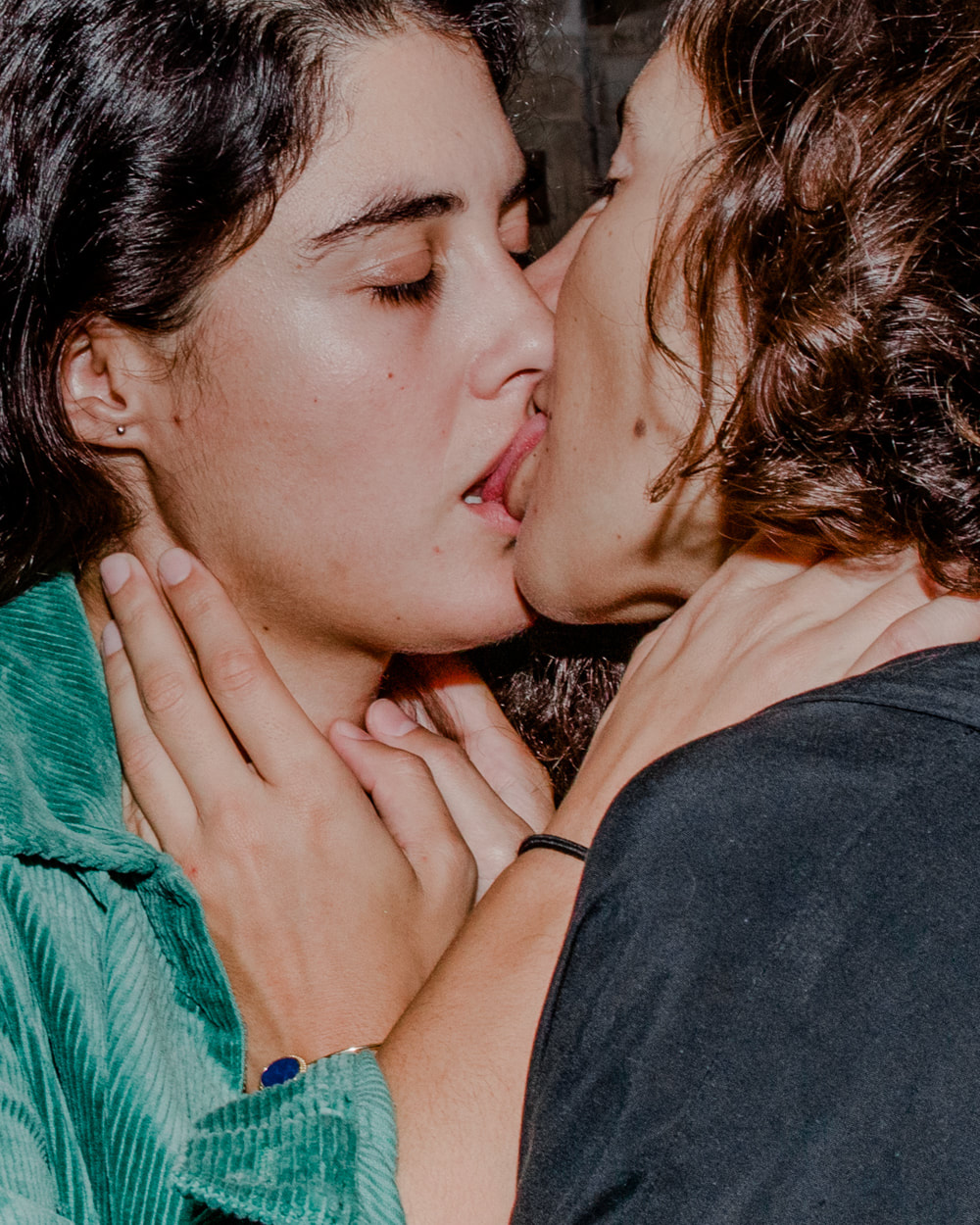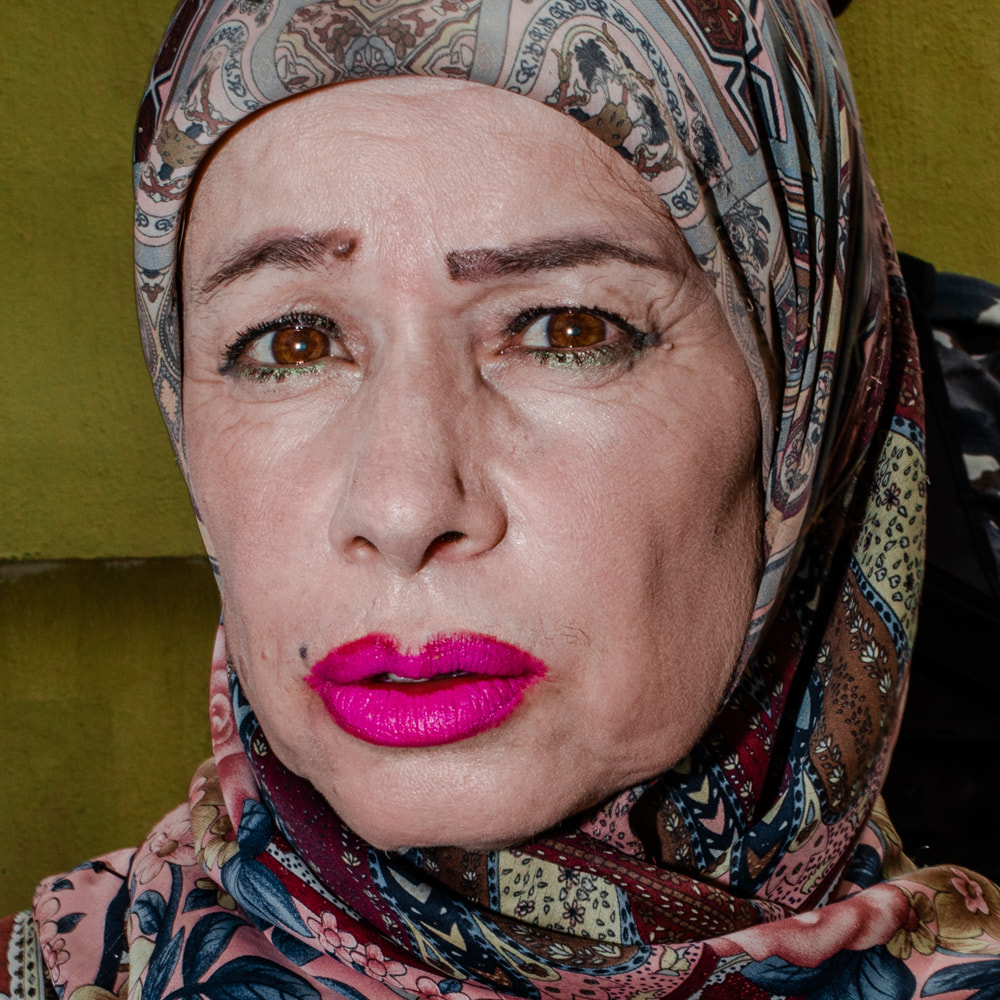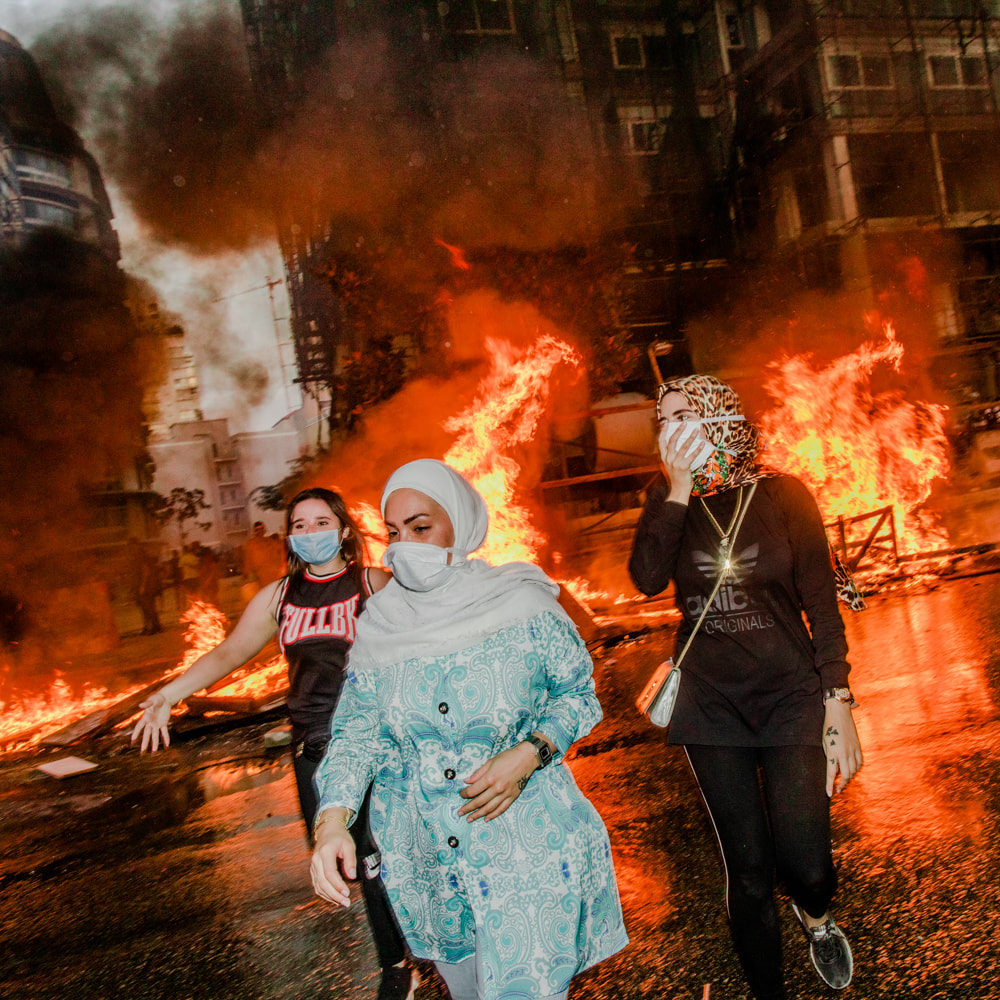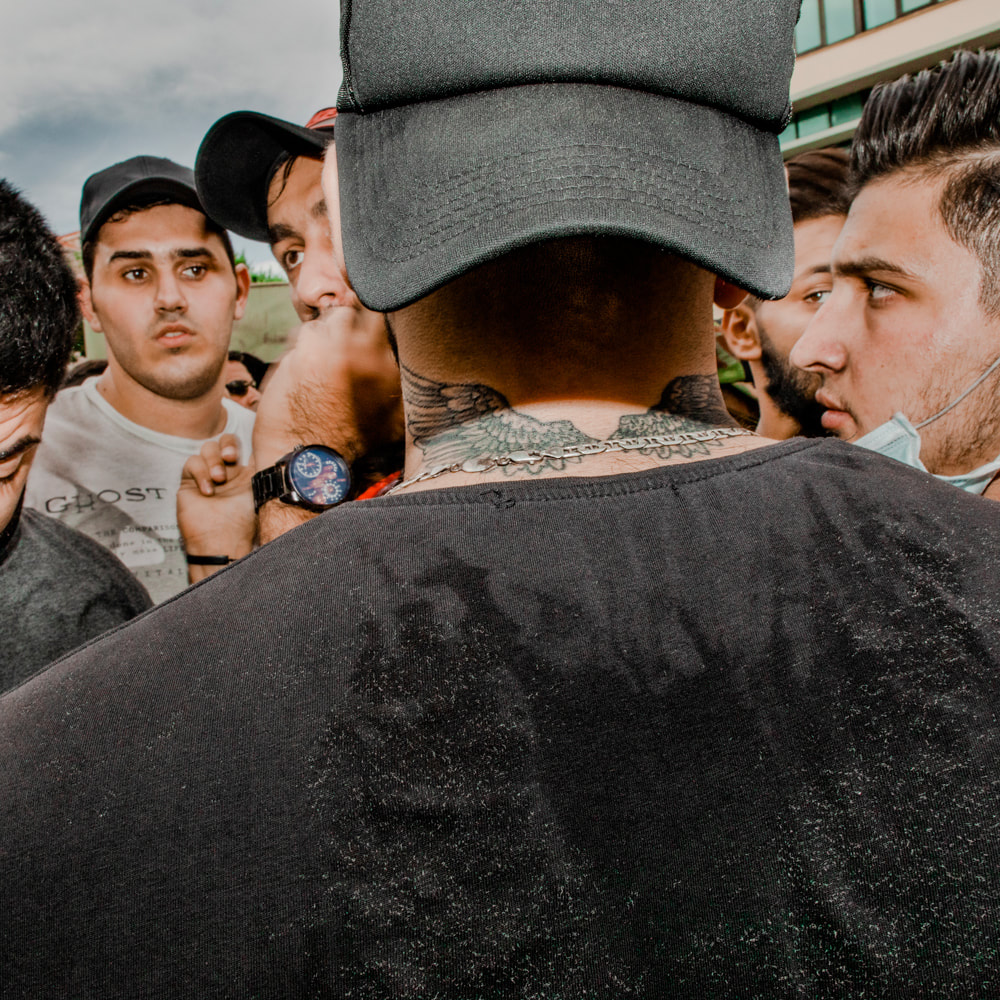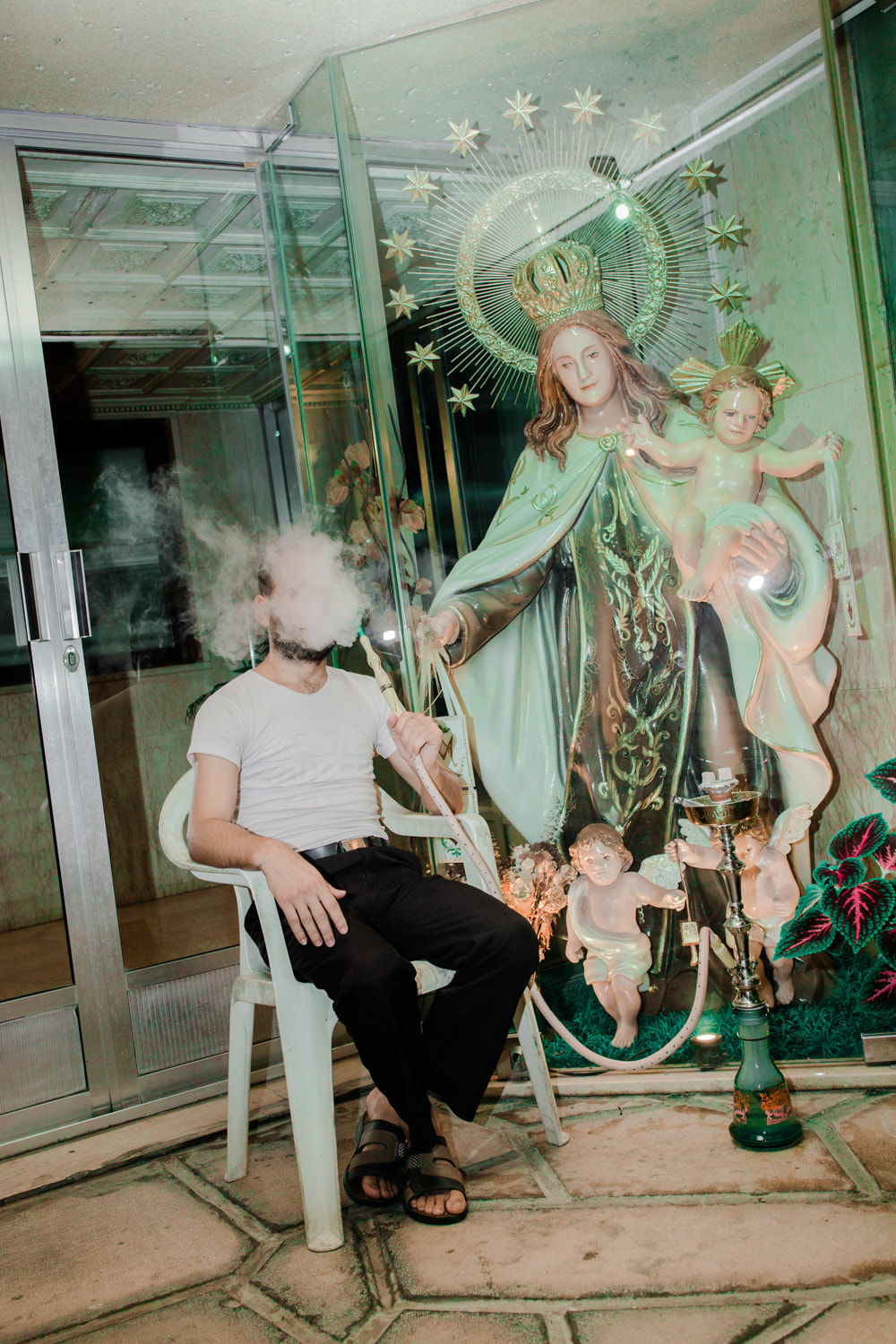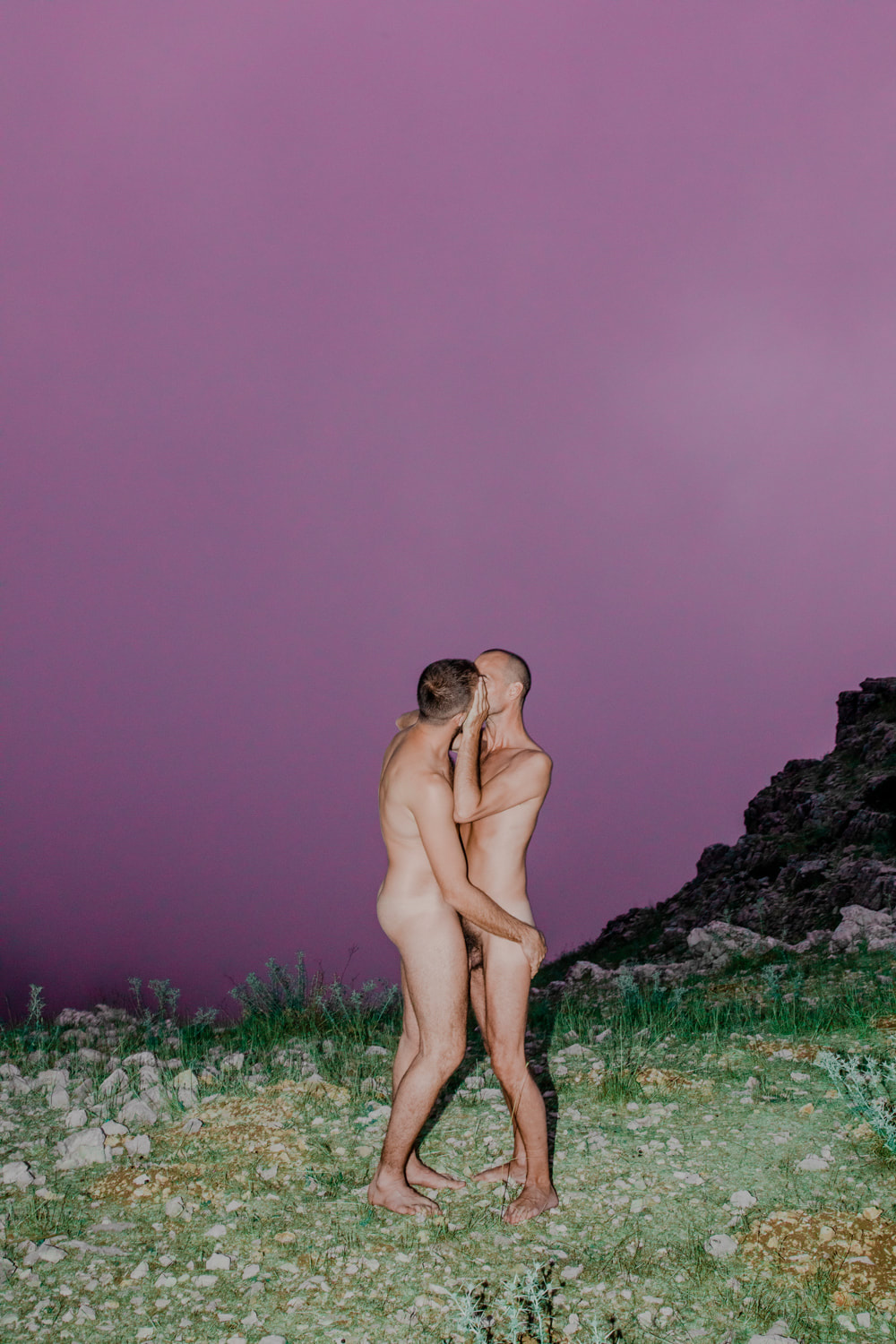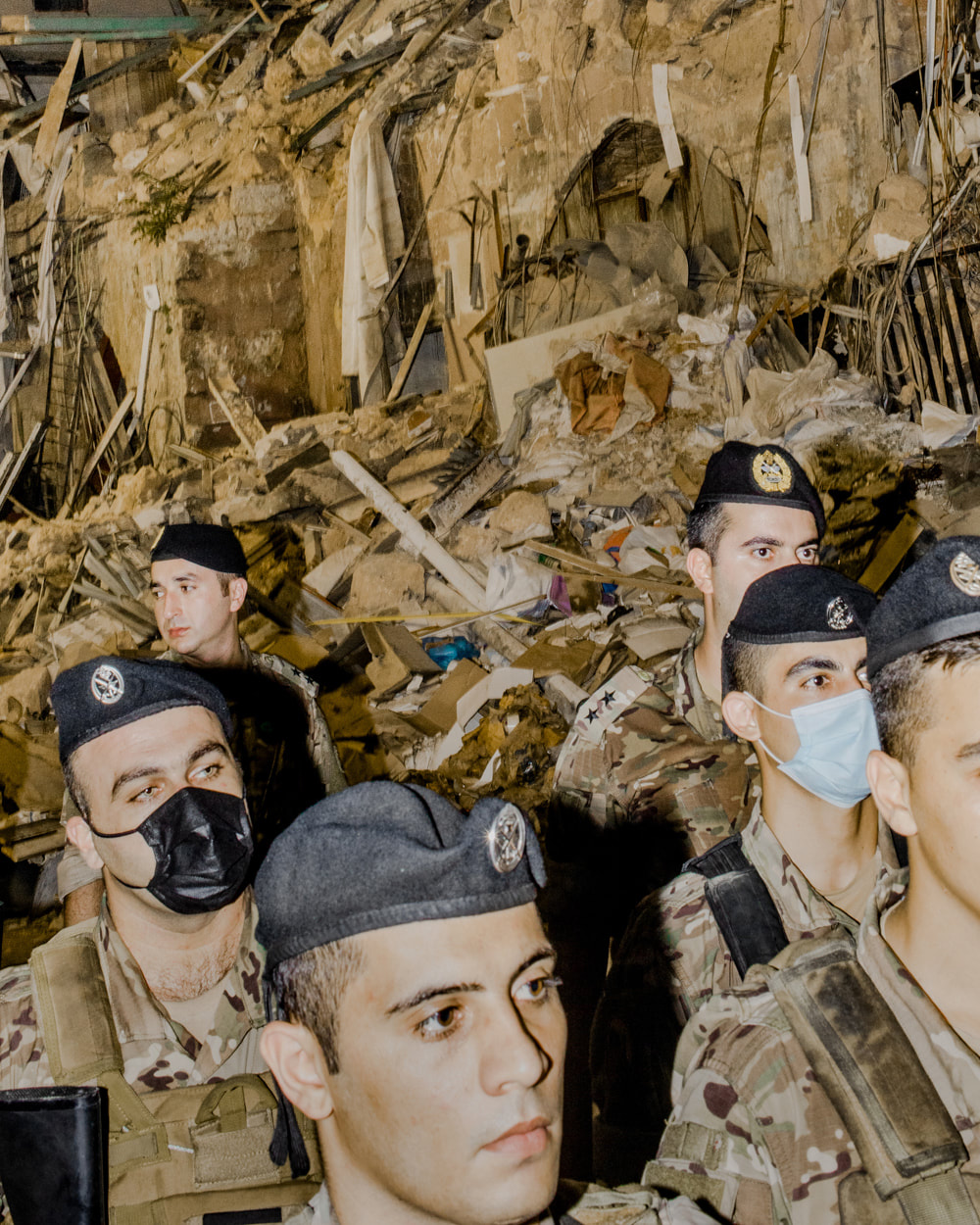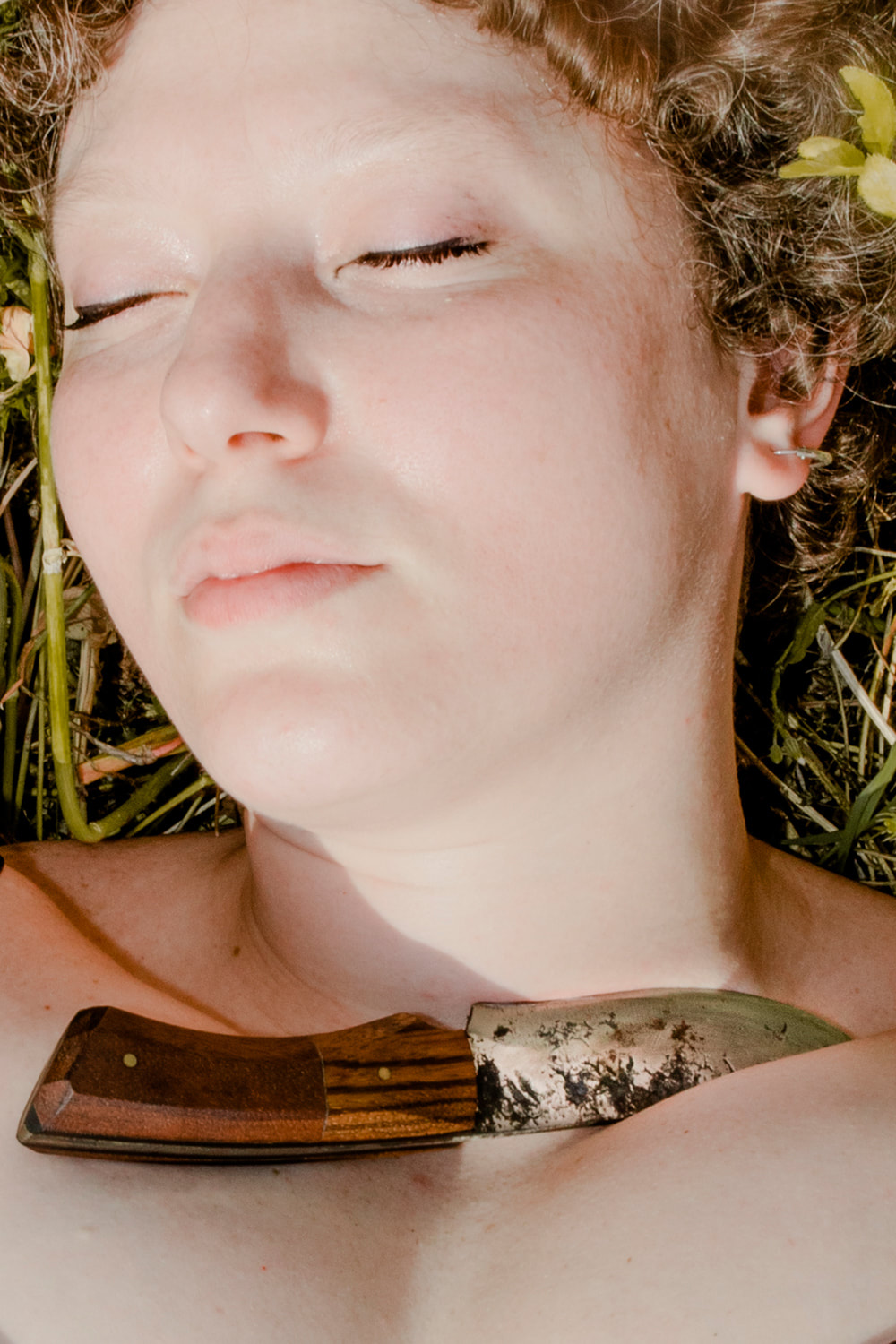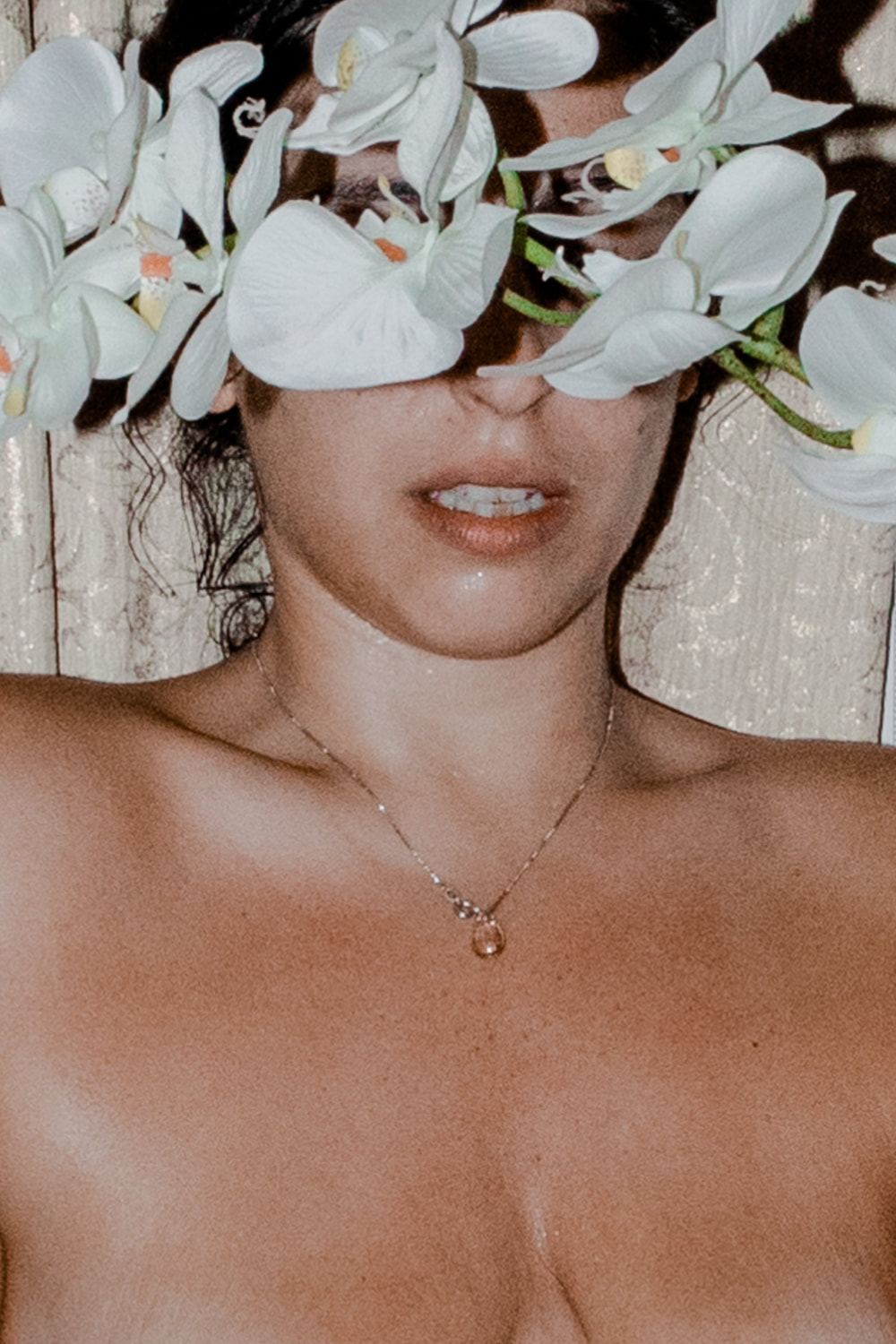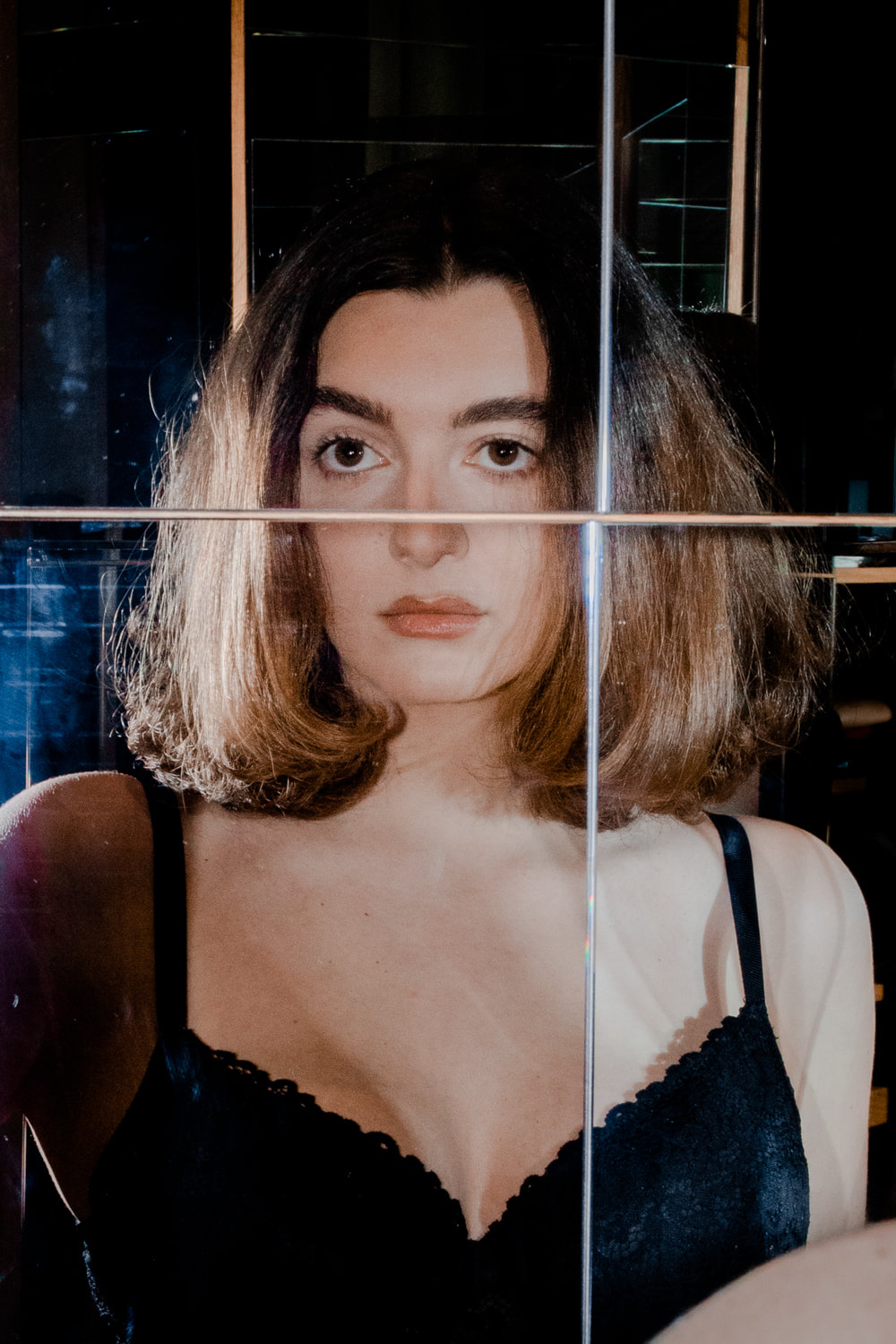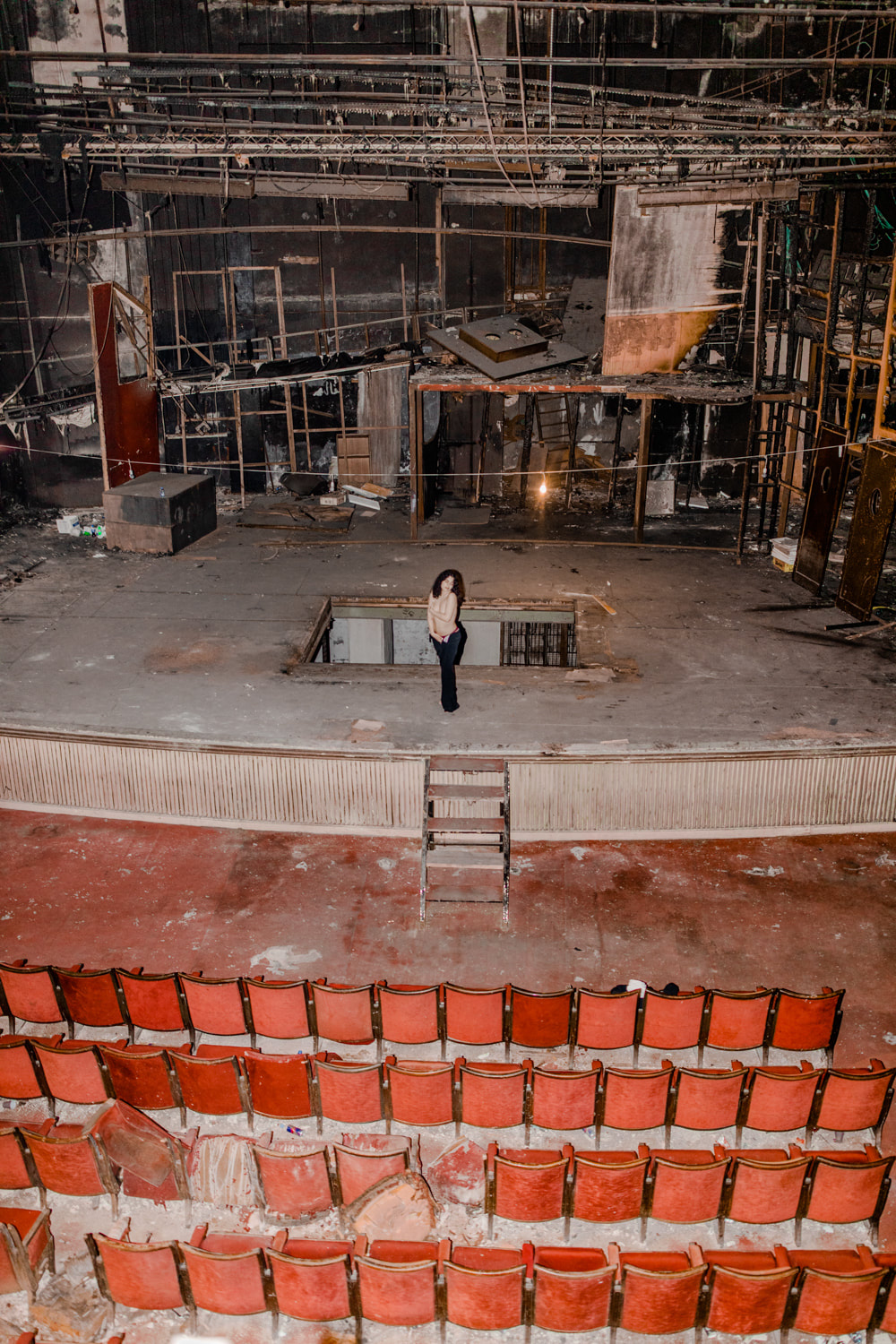This interview has been edited for length and clarity.
|
|
About the PhotographerMyriam Boulos was born in 1992 in Lebanon. At the age of 16 she started to use her camera to question Beirut, its people, and her place among them. She graduated with a master’s degree in photography from L’Académie Libanaise des Beaux Arts in 2015. Myriam took part in both national and international collective exhibitions, including Infinite Identities (Amsterdam), 3ème biennale des photographes du monde arabe (Paris), and C’est Beyrouth (Paris). Today she uses photography to explore, defy, and resist society. In 2021 she was awarded the Grand prix ISEM, the 2nd prize of PhMuseum women’s grant, Foam talent, and she joined Magnum Photos. |
|
Truth in Photography: Could you talk a little bit about yourself as a photographer? How did you become a photographer?
Myriam Boulos: I guess it goes back to when I was younger than six years old. I used to have a tiny fuchsia camera. Once, we were on the highway in the car, my parents were driving, and my younger brother, who was not even one-year-old, took my camera and threw it from the window. I remember very clearly the feeling I had when this happened. I remember this feeling of, for example, when you hold a soap, and it slips away from your hands. It's like having zero control over things. And for me, one of the multiple reasons why I am a photographer, is that it gives a sense of (delusional) control over things. And so, I think that this moment where this camera flew out the window was my first link to photography. And then when I was six years old, my parents offered me a Fisher Price camera, and we did a road trip from Lebanon to Jordan, and I took so many pictures. Apparently, I used to get close to everything with this camera. And then when I was 16 years old, I met a girl who became one of my closest friends, and she had this sophisticated camera. I told my parents, I would love to have this kind of camera, and my mom told me that I had to develop my gaze before getting this kind of expensive camera. And from this moment, I think that photography became the most obvious and fluid thing in my life.
TiP: What did your mother mean by developing your gaze?
Boulos: My mother is an illustrator and comic book artist. I think for her it was important that I develop my eye, learn to see things before having an object that makes me concretize these things. She didn't want to spoil me and for me to have an expensive camera and get bored of it after a few years. I think she understood that photography is about how you see things.
TiP: In a general sense, do you think about issues of truth in your photography, the truth of what you're seeing?
Boulos: These last few years I'm realizing the importance of it. Before 2019, I used to use photography as a collage of what was happening in my head on the world that exists outside of my head. I think that through photography, we automatically re-appropriate reality and truth, and as photographers we naturally have this kind of power. During the revolution, I realized that I am interested in images that are (inter)active encounters between the photographer and the people in the pictures: To create a visual space in which both truths merge, dialogue, and coexist.
TiP: I think the ethics of photography are very important. How does that figure into your work?
Boulos: A few years ago, I used to take pictures and use them without having the consent of the people I photographed. Today, for me consent in photography is like consent in any encounter in life.
Even in a time of crisis, for example during the revolution, when the riot police were throwing tear gas at us, I would take pictures, then I would stop, while we were running, and be like: “Hey, I took a picture of you. Please, can I take your number so I can send you the picture?”
For me it’s important because I want to know what happened on the other side of the picture. I want to know how the person was feeling. I'm interested in how our two worlds meet and how they were existing together. I am not interested anymore in an image that doesn’t take in consideration the people in it.
TiP: Talk about the revolution. How old were you during the revolution when you started doing this kind of work?
Boulos: (Not everyone calls it the revolution in Lebanon, but it's a word that I use.) It started in October 2019. I was 27, but actually before the revolution I was working on a photo series that I called Dead End, because I was feeling at a dead end in my body and in my city. To me, the revolution was an answer to so many questions I had in me. I really felt as if we were finally saying no to an abusive relationship with the system we live in, in Lebanon. This collective movement and this collective awareness changed my life completely. Because when we start saying no to one thing, it's like a domino effect. We say no to everything that is normalized when it shouldn't be in our life, from the political to the most intimate and personal things.
Myriam Boulos: I guess it goes back to when I was younger than six years old. I used to have a tiny fuchsia camera. Once, we were on the highway in the car, my parents were driving, and my younger brother, who was not even one-year-old, took my camera and threw it from the window. I remember very clearly the feeling I had when this happened. I remember this feeling of, for example, when you hold a soap, and it slips away from your hands. It's like having zero control over things. And for me, one of the multiple reasons why I am a photographer, is that it gives a sense of (delusional) control over things. And so, I think that this moment where this camera flew out the window was my first link to photography. And then when I was six years old, my parents offered me a Fisher Price camera, and we did a road trip from Lebanon to Jordan, and I took so many pictures. Apparently, I used to get close to everything with this camera. And then when I was 16 years old, I met a girl who became one of my closest friends, and she had this sophisticated camera. I told my parents, I would love to have this kind of camera, and my mom told me that I had to develop my gaze before getting this kind of expensive camera. And from this moment, I think that photography became the most obvious and fluid thing in my life.
TiP: What did your mother mean by developing your gaze?
Boulos: My mother is an illustrator and comic book artist. I think for her it was important that I develop my eye, learn to see things before having an object that makes me concretize these things. She didn't want to spoil me and for me to have an expensive camera and get bored of it after a few years. I think she understood that photography is about how you see things.
TiP: In a general sense, do you think about issues of truth in your photography, the truth of what you're seeing?
Boulos: These last few years I'm realizing the importance of it. Before 2019, I used to use photography as a collage of what was happening in my head on the world that exists outside of my head. I think that through photography, we automatically re-appropriate reality and truth, and as photographers we naturally have this kind of power. During the revolution, I realized that I am interested in images that are (inter)active encounters between the photographer and the people in the pictures: To create a visual space in which both truths merge, dialogue, and coexist.
TiP: I think the ethics of photography are very important. How does that figure into your work?
Boulos: A few years ago, I used to take pictures and use them without having the consent of the people I photographed. Today, for me consent in photography is like consent in any encounter in life.
Even in a time of crisis, for example during the revolution, when the riot police were throwing tear gas at us, I would take pictures, then I would stop, while we were running, and be like: “Hey, I took a picture of you. Please, can I take your number so I can send you the picture?”
For me it’s important because I want to know what happened on the other side of the picture. I want to know how the person was feeling. I'm interested in how our two worlds meet and how they were existing together. I am not interested anymore in an image that doesn’t take in consideration the people in it.
TiP: Talk about the revolution. How old were you during the revolution when you started doing this kind of work?
Boulos: (Not everyone calls it the revolution in Lebanon, but it's a word that I use.) It started in October 2019. I was 27, but actually before the revolution I was working on a photo series that I called Dead End, because I was feeling at a dead end in my body and in my city. To me, the revolution was an answer to so many questions I had in me. I really felt as if we were finally saying no to an abusive relationship with the system we live in, in Lebanon. This collective movement and this collective awareness changed my life completely. Because when we start saying no to one thing, it's like a domino effect. We say no to everything that is normalized when it shouldn't be in our life, from the political to the most intimate and personal things.
TiP: So these were social protests that you were photographing, and the social protests were protesting issues related to women?
Boulos: The revolution was mainly calling for the fall of Lebanon’s political elite. It was triggered by systemic corruption, repression, growing inequalities, and signs of an imminent economic collapse. There also were protests against other intertwined issues like sexism, harassment, homophobia, transphobia, and racism.
TiP: When the revolution started, was that your first serious body of work?
Boulos: No, no, no. I started photography when I was 16, so almost 15 years ago. And for me everything is linked. From my first pictures I was already committed. I think I started my first photography series and projects in 2013. I used to take pictures only at night, because for me, it was the moment where the social map would suddenly appear. I was obsessed with the society in Lebanon, trying to understand it, and trying to understand people and my place among them.
TiP: When you started photographing the revolution, how did your approach change?
Boulos: I think with the revolution, I felt more responsibility. We’re going back to the notion of truth because I was documenting my reality, but my story was also a collective story. So, it wasn't only mine. I started working with and telling our stories in Lebanon to big international media. So, my approach changed with this responsibility.
TiP: How was that manifest? What was the subject matter?
Boulos: My approach changed, but my way of photographing stayed the same during the revolution (it did change radically later, after the August 4, 2020 explosion): I started combining my images with fragments of conversations with the people in the images and fragments of my own diary. I started feeling that my diary was adding something to my images. This triangle of images, diary, and conversation with other people (even sometimes people who are not in the pictures), the collage of these three things, this became my new way of working and documenting.
Boulos: The revolution was mainly calling for the fall of Lebanon’s political elite. It was triggered by systemic corruption, repression, growing inequalities, and signs of an imminent economic collapse. There also were protests against other intertwined issues like sexism, harassment, homophobia, transphobia, and racism.
TiP: When the revolution started, was that your first serious body of work?
Boulos: No, no, no. I started photography when I was 16, so almost 15 years ago. And for me everything is linked. From my first pictures I was already committed. I think I started my first photography series and projects in 2013. I used to take pictures only at night, because for me, it was the moment where the social map would suddenly appear. I was obsessed with the society in Lebanon, trying to understand it, and trying to understand people and my place among them.
TiP: When you started photographing the revolution, how did your approach change?
Boulos: I think with the revolution, I felt more responsibility. We’re going back to the notion of truth because I was documenting my reality, but my story was also a collective story. So, it wasn't only mine. I started working with and telling our stories in Lebanon to big international media. So, my approach changed with this responsibility.
TiP: How was that manifest? What was the subject matter?
Boulos: My approach changed, but my way of photographing stayed the same during the revolution (it did change radically later, after the August 4, 2020 explosion): I started combining my images with fragments of conversations with the people in the images and fragments of my own diary. I started feeling that my diary was adding something to my images. This triangle of images, diary, and conversation with other people (even sometimes people who are not in the pictures), the collage of these three things, this became my new way of working and documenting.
TiP: Did you do audio recordings or were you just taking notes?
Boulos: Actually, I ask each person how they prefer to express themselves. Sometimes it's through email, through texts, through written words, and sometimes it's through audio notes. For example, after the August 4 explosion in Beirut, after photographing people, I asked them to send me, with written words or audio notes, what they thought was important to be said, what they wanted to express. And so, it's a mix of audio notes and written words. Sometimes people send me drawings, videos, or whatever form of expression they use.
TiP: What's happening now in Beirut?
Boulos: The country is not doing well at all. The revolution started because we were feeling the economic collapse arriving. And now it’s getting worse and worse. Before the crisis, one dollar was 1,500 Lebanese lira. Today, one dollar is between 22,000 and 36,000 Lebanese lira, which is crazy. And it's still not stable, so we don't know where it's going to go. I’m going to talk about myself because I cannot talk for other people: I’m part of the people who are more privileged (I have a home, I have freelance jobs); but still I almost never receive electricity (around 1 hour/week), and the neighborhood generator I’m subscribed to works less than half of the day (generators replace electricity in Lebanon). It's been like this for more than a year.
TiP: So, in terms of your current photography, are you still focusing on this? Is the revolution ongoing? Are you going in different directions in your own work?
Boulos: In 2019 the revolution brought together people from different sects, regions, social classes and nationalities. Today this big movement is no longer present on the streets. There still are some protests, we are still resisting, but in different ways.
Boulos: Actually, I ask each person how they prefer to express themselves. Sometimes it's through email, through texts, through written words, and sometimes it's through audio notes. For example, after the August 4 explosion in Beirut, after photographing people, I asked them to send me, with written words or audio notes, what they thought was important to be said, what they wanted to express. And so, it's a mix of audio notes and written words. Sometimes people send me drawings, videos, or whatever form of expression they use.
TiP: What's happening now in Beirut?
Boulos: The country is not doing well at all. The revolution started because we were feeling the economic collapse arriving. And now it’s getting worse and worse. Before the crisis, one dollar was 1,500 Lebanese lira. Today, one dollar is between 22,000 and 36,000 Lebanese lira, which is crazy. And it's still not stable, so we don't know where it's going to go. I’m going to talk about myself because I cannot talk for other people: I’m part of the people who are more privileged (I have a home, I have freelance jobs); but still I almost never receive electricity (around 1 hour/week), and the neighborhood generator I’m subscribed to works less than half of the day (generators replace electricity in Lebanon). It's been like this for more than a year.
TiP: So, in terms of your current photography, are you still focusing on this? Is the revolution ongoing? Are you going in different directions in your own work?
Boulos: In 2019 the revolution brought together people from different sects, regions, social classes and nationalities. Today this big movement is no longer present on the streets. There still are some protests, we are still resisting, but in different ways.
|
One of my ways of resisting was by choosing to focus on and explore things that are present in me, independently from the situation that is imposed to us in Lebanon. So, I started working on something that I had been wanting to work on for a few years now. It's a project on women's sexual fantasies. I've been wanting to work on this since I discovered my own sexual fantasies, and I finally started last year. I started in a very simple way. I simply posted an open call saying, “If you identify as a woman and you want to share your sexual fantasies, send me an email.” It's a collaborative approach. People in the pictures choose to be in the pictures. They write to me. And once they send me their text, their sexual fantasy, I tell them the project is binary in its form for now: it's image and text based. And I ask them, how would they imagine the image? If they want to be present in it or not, what they want to show or not, where they want to be photographed, what they want to wear, etc. It's going to be a very long-term project.
TiP: How do you visualize a person's sexual fantasy? Are the photographs you're making portraits? Are they interactive? Boulos: When I started the project, I didn't want the images to be a literal illustration of the fantasy. But since it's a collaboration and I ask every person how they want to be photographed, it really depends on the person. For example, I collaborated with a woman who told me that her fantasy is to have a knife placed under her throat during sex. And so, we decided together to literally do this as an image. Together, we bought a knife, we placed it under her throat, and this was our image. It really depends on the person. |
|
|
Delve deeper |

